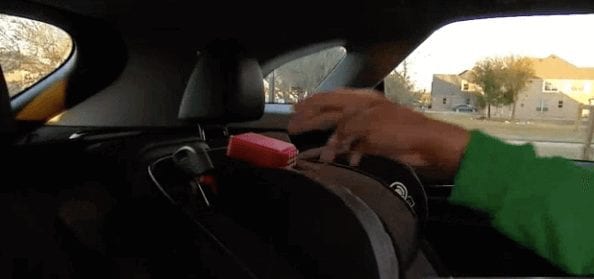No parent can fathom the death of any child, much less that of their own child. Unfortunately that’s a burden that Miles and Carol Harrison carry with them every day.
After adopting their son Chase, Miles and Carol were overjoyed to have found the missing piece to their family. But on a 90-degree day back in 2008, Miles forgot to drop his 21-month-old son off at daycare, accidentally leaving the little boy in a hot car while he went to work.

Experts say an outdoor temperature of 90 degrees would cause the inside of a vehicle to heat up to 130 degrees in less than an hour.
Without a second thought, Miles accidentally caused his long-awaited son’s death.
“I have not forgiven myself,” Miles said. “And it’s heartbreaking because I did it, I killed my son.”
It’s been nine years, but these parents want others to know the danger of forgetting children in cars.
“Nobody thinks it will happen to them, until it happens,” Carol said.
Now, legislators are proposing a bill that would require new cars to be equipped with sensors that alert drivers that a child is in the back seat once the vehicle is shut off.
This year alone, 11 children died nationwide in hot vehicles just during the month of July. Since 1998, more than 720 children have died from heatstroke inflicted by a hot car. That’s an average of 37 children who die each year from something the Harrisons believe to be completely preventable.
Some feel the proposed sensor technology could drastically reduce that number, while others argue that the technology may not find its way to the parents who need it most, as many new and expecting parents don’t purchase new vehicles.
For that, 11-year-old Bishop Curry has a solution.
The Texas fifth grader designed and invented a device called the Oasis, which would attach to the top of a child’s carseat. A sensor would detect a child who is essentially trapped inside the car, and blow cool air on them while the device alerts nearby police and parents via text message that a child has been left in the car. The cool air will blow on the child until help arrives.

It’s still in its developing stages, but the youngster has already obtained a provisional patent for the future product, which could be the missing piece to legislators doubts about the new law’s ability to reach all parents.
Still, the proposed bill is attracting positive feedback from bipartisan officials and parents everywhere, with the hopes of saving at least one life. The Harrison’s hope it becomes a law.
“We need to stop families having to deal with what I’ve done to our family. This law can do that,” Miles said, choking back tears.
